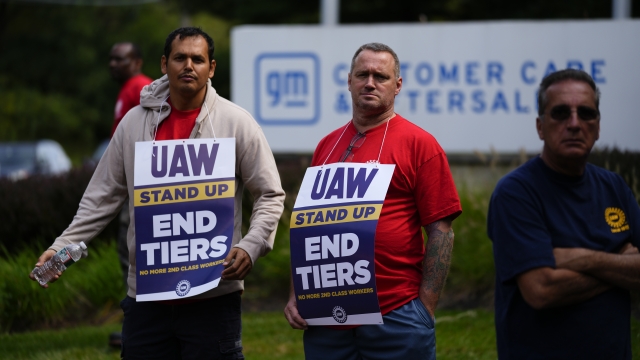Autoworkers now on strike against the Big Three car manufacturers want higher pay, better pension benefits and a shorter workweek.
"Our members are working 60, 70, even 80 hours a week just to make ends meet. That's not a living. That's barely surviving and it needs to stop," said Shawn Fain, the UAW president.
The union says it wants a four-day, 32-hour week while still getting 40 hours of pay.
The idea of a 40-hour workweek started in the auto industry back in the 1930s, but especially in the post-pandemic era a shorter week is again getting more attention from companies and employees around the globe.
In the UK,33 companies that tried out a 4-day workweek for six months give it high marks for productivity and performance. More than 96% of their employees wanted it to continue.
"Every indicator about their physical and mental well-being showed evidence of improvement," said Wen Fan, a lead researcher and professor of sociology at Boston College.
But many companies oppose a four-day workweek. In California, a proposed bill mandating a 32-hour workweek was called a "job killer" by business groups who said it would drive up costs, discourage job growth and make them less competitive. A similar bill at the federal level has stalled in Congress.
SEE MORE: UAW expands strike to 38 plants across 20 states
"When you’ve got your main workforce doing four days, can you find the workforce to cover those days off? For the smaller and mid-sized operations, you may have to add a number of people that increase your labor costs 10%, 20%, 30% or more," said Chris Micheli, an adjunct professor at the McGeorge School of Law.
Whether automakers will meet workers' demands for a 32-hour week is not yet clear.
"I want everyone to make a good living and a fair living," said Yolanda Downs, a UAW member.
But observers say the push toward a shorter workweek isn’t going away anytime soon.
"The pandemic and the ability to work from home has changed a lot. There are many more people today who are looking for a truer work-life balance," said Micheli.
Trending stories at Scrippsnews.com



